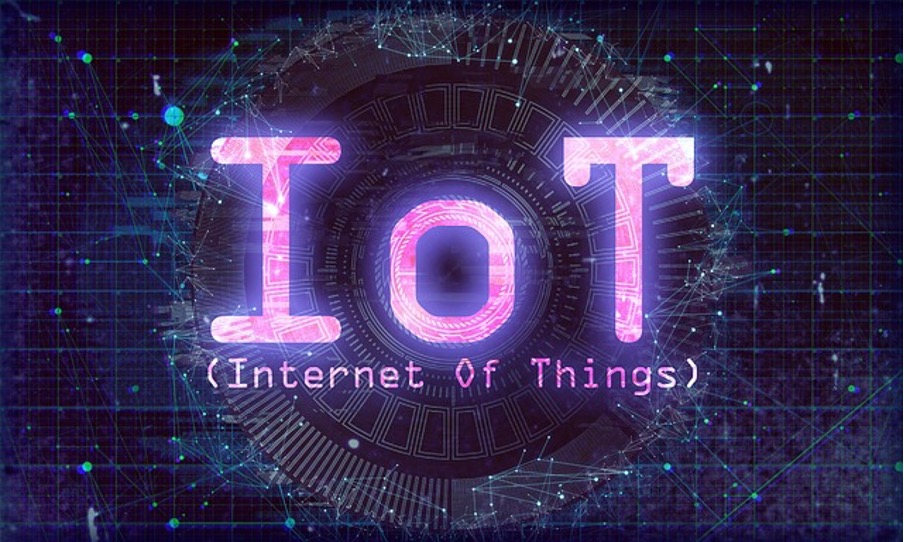The Internet of Things (IoT) refers to a network of physical devices exchanging data and information via the internet. The main purpose is to create a global ecosystem that can function, communicate, and collaborate with minimal human interference. The IoT enhances productivity and efficiency across the board, improving different industries, sectors, and all parts of private or corporate life.
The IoT is gaining popularity, with recorded adoption on the rise. There are already more than 15.4 billion connected IoT devices worldwide, expected to nearly double to 29.42 billion by 2030.
Benefits of the Internet of Things
IoT offers great benefits regardless of sector or industry. Some of these benefits include:
- Automation: IoT devices help to optimize most processes and streamline operations to save time and resources. It also reduces human error, processes data in real time, and monitors equipment for predictive maintenance.
In addition, IoT can help with inventory management in the logistics and retail sector, traffic management in urban areas, automated services for customer care, and healthcare delivery by enabling telemedicine and efficient management of medical resources.
- Adaptability: Connection to the Internet of Things ensures that an organization can be adaptable when needed. As the world evolves and business needs change, organizations must be ready to pivot to remain relevant. IoT helps these companies adapt to changing customer needs and also scale whenever necessary.
In addition, the IoT helps organizations stay adaptable to the evolving crypto market. Due to the long drawn out crypto bear market, investors are already looking for the “next Bitcoin,” an asset with great utility and potential for gains (source: https://insidebitcoins.com/buy-cryptocurrency/next-cryptocurrency-to-explode). Regardless of what the next major crypto would be, companies adopting IoT are better prepared to adapt.
- Improved Decision-making: Data gathered by IoT devices are quickly analyzed in real time and used to form decisions. For instance, in the manufacturing and supply chain industry, human interference is not needed to detect and shut down an operation or machine when there is a fault or anomaly.
- Cost Savings: The IoT is a great way to help people and organizations save on their business operations and purchases. The more a business can streamline its operations via the Internet of Things, the more likely it is to become profitable.
For instance, IoT devices can use sensors to ensure that machines operate optimally. Sensors can also be used to detect when troubleshooting or repairs are necessary. According to a Deloitte study, IoT can help to reduce maintenance costs by up to 10%, and cut maintenance planning time by up to 50%.
IoT Concerns
Despite the many benefits, there are several concerns about the widespread adoption of IoT, including:
- Cybersecurity Vulnerabilities: The Internet of Things is susceptible to hacking and cyberattacks. This concern is weighty because any successful breach of an IoT network or device can threaten the overall security of a network. It is also possible that cybersecurity vulnerabilities can cause physical harm to critical infrastructure and personnel if the network controls physical moving parts.
- Data Privacy: There are concerns about the large amounts of information exchanged between IoT devices. Since these devices are designed to freely share the data, some of which are sensitive, there is some risk that critical or private information could fall into the wrong hands.
- Compatibility Issues: IoT devices and platforms may use different software and communication standards. Unless there is a universal communication protocol that all devices must support, data exchange may become problematic.
- Regulation: All organizations and devices must adhere to legal requirements regarding data protection in different countries and regions. Where the exchange of data must cross borders, regulatory requirements in these countries may impede the free exchange of data. For instance, regulations like the General Data Protection Regulation (GDPR) in Europe may not support easy data transfers to devices in other regions.
How Blockchain Technology Can Accelerate IoT Adoption
Easy exchange of information is a prerequisite for IoT adoption. Although there are concerns about the ease and sustainability of data transfers, blockchain technology can help to accelerate the adoption of IoT in the following ways:
- Enhanced Security: Blockchain can enhance security by ensuring data integrity because information passed or retrieved via the blockchain is immutable. All recipients can make sure that the information one device receives is exactly as it was sent by the sender. This benefits supply chain organizations as they can reduce the risk of fraud since all transactions are verified on the blockchain.
- Interoperability: Blockchain can help to solve compatibility issues. For instance, since Ethereum is widely used in decentralized finance (DeFi), nearly all DeFi projects and protocols that are compatible with Ethereum can freely inter-exchange data.
- Scalability: Through layer-2 networks and sidechains, blockchain technology can take a lot of weight off the original network. This ensures that IoT devices can handle a large number of connections and exchange heavy data. An IoT network’s ability to scale directly affects adoption because networks can handle an increased number of transactions with ease.
- Decentralization: The decentralized nature of the blockchain means that IoT networks are not susceptible to single points of attacks or failure. Via the blockchain, information exchange can continue even if a device is compromised.
- Smart Contracts: Smart contracts on the blockchain enhance IoT automation. A smart contract is a self-executing contract that follows rules built directly into its code. Using smart contracts greatly reduces the need for human interference for all blockchain activities and transactions since the contracts can automatically follow these rules without any support or interference.



